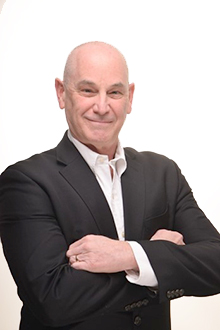Why run a TMC review before an RFP

Situated at the heart of the business travel value chain, the Travel Management Company (TMC) plays a key role in helping businesses achieve their goals of service quality, cost control, traveler safety, and sustainability.
Furthermore, the added value of TMCs is expanding as their mission becomes increasingly complex. They connect or integrate a growing variety of partners, new entrants, and technological solutions in a business travel landscape undergoing significant transformation.
Therefore, it is paramount for businesses to carefully choose their TMC partner. Conducting an assessment of existing programs and establishing a strategy before delving into sourcing activities proves highly advantageous.
Conducting a Program Assessment and Establishing a Strategy
Building the current picture
To begin, the business can initiate an analysis of the current situation. This involves taking inventory of existing rules (travel policies), processes, and practices in place, and documenting current suppliers and contracts.
This process can include:
- Identifying the highest stakes (expenditure distribution).
- Conducting a critical analysis of the existing situation, including user-friction zones, implemented tools, and their interfaces.
- Comparing the initial contract promises with actual performance.
- Evaluating overall efficiency and competitiveness of the current set up against market best practices in economic and service quality terms.
Drawing the strategy
Once the current situation is outlined, it is valuable to define a strategy for what the business expects from its partnership with the TMC over a 3- to 5-year timeline.
This may involve:
- Determining the company’s vision and priorities.
- Outlining the path to achieve these goals.
- Identifying internal and external resources to mobilize.
This strategic plan should be coherent with the group-level indirect purchasing strategy and adapted to the company’s culture and available resources.
Having a clear vision of the starting point and strategic priorities moving forward offers five fundamental advantages when contemplating launching a TMC Request for Proposals (RFP).
Five Advantages
Clarify the ‘RFP or not?’ decision
Comparing the current situation with the expected and estimated benefits of the RFP, both financially and non-financially, provides an idea of the Return on Investment (ROI) for such a project, taking into account the change of supplier costs.
Having a clear business case is crucial, given that a TMC RFP project represents a significant investment (and for suppliers too!) with substantial implementation timelines.
In some cases, the business may prefer renegotiating with the existing supplier(s), addressing highlighted issues from the assessment and constructing a future strategy in a collaborative manner. If these negotiations prove unsuccessful, the company can still revert to the RFP option, as occasionally happens.
Identify improvement areas
The precise analysis of the existing situation allows for measurement of both qualitative and quantitative margins of improvement and potential progress.
In particular, calculating the Total Cost of Ownership (TCO) during the assessment enables the comparison of gains generated by candidate proposals in successive rounds against the baseline. Additionally, it provides a more refined and precise estimation of change costs in the case of a supplier switch.
Set the stage for suppliers
Conducting the assessment allows for a comprehensive and detailed description of the current program to be presented to suppliers during the RFP. This makes the bidding process more efficient, as candidates can better understand the company’s specific context and incorporate it into their value proposition.
Direct the RFP in the right strategic direction
Defining the strategy provides a clear briefing in defining the need and constructing the specifications. This clarification makes the RFP process more efficient and makes it easier for suppliers to build a relevant value proposition without exploring undesired scenarios in terms of service configuration, economic model, and technology integration.
Leverage experience
Analyzing the existing situation helps identify what has not worked so far, preventing the repetition of mistakes (e.g., initial choices and lack of SLA and KPI monitoring during the contract lifecycle) when negotiating the new contract or implementing it (resistance to change).
Overall, this type of project, typically lasting 3-4 months, does require senior management sponsorship and internal cross-functional resources. However, it represents a fruitful investment by making the TMC RFP more relevant and effective. In some cases, businesses may choose to enlist the support of an expert firm like Areka for methodology, benchmarking, and project management assistance.
What does Areka do?
At Areka, our global team of expert consultants provide customized, end-to-end business travel management services to organizations worldwide. Areka’s aim is to empower travel managers and buyers to reach higher performance targets across all areas of their travel program, including corporate travel, expense, and strategic meetings management. Get in touch with us today.


